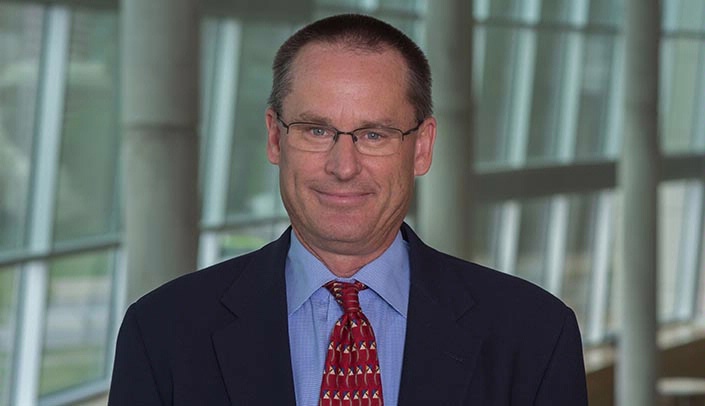It happens all the time. You think you are saying one thing. But a spouse or loved one inexplicably hears something else entirely. And this is someone you live with.
For as long as there has been human communication, there has been miscommunication.
“Human language doesn’t translate so well outside of its context,” said Scott Campbell, Ph.D., director of public health and pathology informatics laboratories.
Or sometimes, even within its context.
So now imagine trying to communicate incredibly complicated medical diagnoses and scientific terminology. To people who may speak any number of different languages. And in a way that’s computable, so bioinformatics are available all over the world.
To do so you would have to get the whole world on the same page, create a common, non-ambiguous language. But, you’d have to do it in as few words as possible. “Semantic interoperability,” Dr. Campbell calls it.
Like a quarterback who can call incredibly complicated football plays and formations in seconds by using a sequence of well-chosen code.
And that’s what UNMC, and Dr. Campbell and his team, which includes his mentor, James Campbell, M.D. (no relation), are working on: creating a playbook, a nomenclature, which puts the whole scientific world on the same page. It’s called the Nebraska Lexicon (see sidebar).
We talk about UNMC leading the world — this is no metaphor. “We are leading that effort worldwide,” Dr. Campbell said, with collaboration from colleges of pathology in the U.K., Australia, Canada and Europe.
And why is it important to do so? “Smart people have so much data, even smart people can’t keep up,” Dr. Campbell said. But, a truly worldwide electronic health record would show the whole picture.
“This unlocks the data,” Dr. Campbell said. “This makes it immediately accessible.” Genomics, biomarkers, the works.
Dr. Campbell and collaborators have published a nomenclature for colon cancer and breast cancer and are working on melanoma and lung cancer, taking all the information on the College of American Pathologists synoptic “worksheets” and turning it into succinct, computable language.
Dr. Campbell, who recently earned a $1.3 million grant from the National Institutes of Health, calls himself a “terminologist.”
He says things like, “Teach me how you talk. Now, what is it you are really trying to say?”
Or, “Here’s what you are calling it – now I want you to tell me what you really meant by that.”
For as long as there has been communication, there has been miscommunication. But soon, no longer, in cancer, thanks to UNMC.

Scott, congratulations!
Great effort by a brilliant person !
Congratulations! Very important work.
And the next task: teach those smart people to explain all this to their patients at a sixth-grade language level.